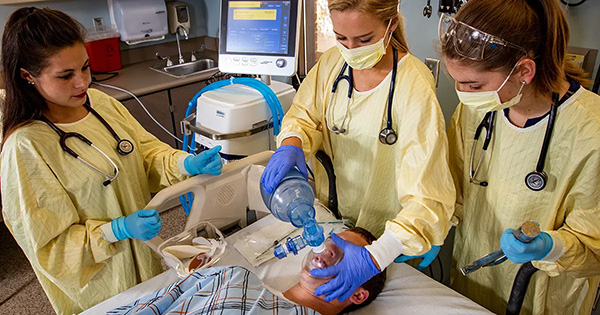A respiratory therapist is a healthcare professional who specializes in the treatment and management of respiratory disorders. They work closely with patients suffering from asthma, chronic obstructive pulmonary disease (COPD), emphysema, and other respiratory conditions that affect the ability to breathe.
Respiratory therapists typically work in hospitals, clinics, and other healthcare settings, and they may also visit patients in their homes to provide care. They are responsible for performing a range of duties, including administering medications and oxygen therapy, performing chest physiotherapy and respiratory therapy, and conducting pulmonary function tests.
To become a respiratory therapist, individuals must complete a two-year associate degree program in respiratory therapy or a four-year bachelor’s degree program. Both programs include coursework in anatomy and physiology, pharmacology, and respiratory care procedures, as well as clinical training. Respiratory therapists must also be licensed in the state in which they work, and many states require therapists to pass a certification exam.
One of the primary responsibilities of a respiratory therapist is to assist patients with breathing problems. This may involve administering oxygen therapy, which involves using oxygen tanks or other oxygen delivery systems to increase the amount of oxygen in a patient’s bloodstream. Respiratory therapists may also use mechanical ventilation, which involves using a machine to help a patient breathe.
In addition to administering treatment, respiratory therapists are responsible for monitoring and assessing the condition of their patients. This includes taking vital signs, such as pulse rate, blood pressure, and oxygen levels, and conducting tests to evaluate a patient’s respiratory function. Based on their observations and test results, respiratory therapists may adjust treatment plans or make recommendations to physicians.
Respiratory therapists also play an important role in patient education. They may teach patients and their families how to manage their respiratory condition, including how to properly use oxygen therapy equipment and how to recognize and respond to signs of respiratory distress.
Overall, respiratory therapists are essential members of the healthcare team who provide vital care and support to patients with respiratory disorders. Their expertise and dedication help improve the quality of life for countless individuals.
Author
Stay connected for new publications, events, and more.







More Stories
World Health Day: A Global Commitment to Health and Well-being
La Journée mondiale de la vaccination : Un Engagement pour la Santé Mondiale
8 Aliments Rassasiants Qui Peuvent Aider à Perdre du Poids